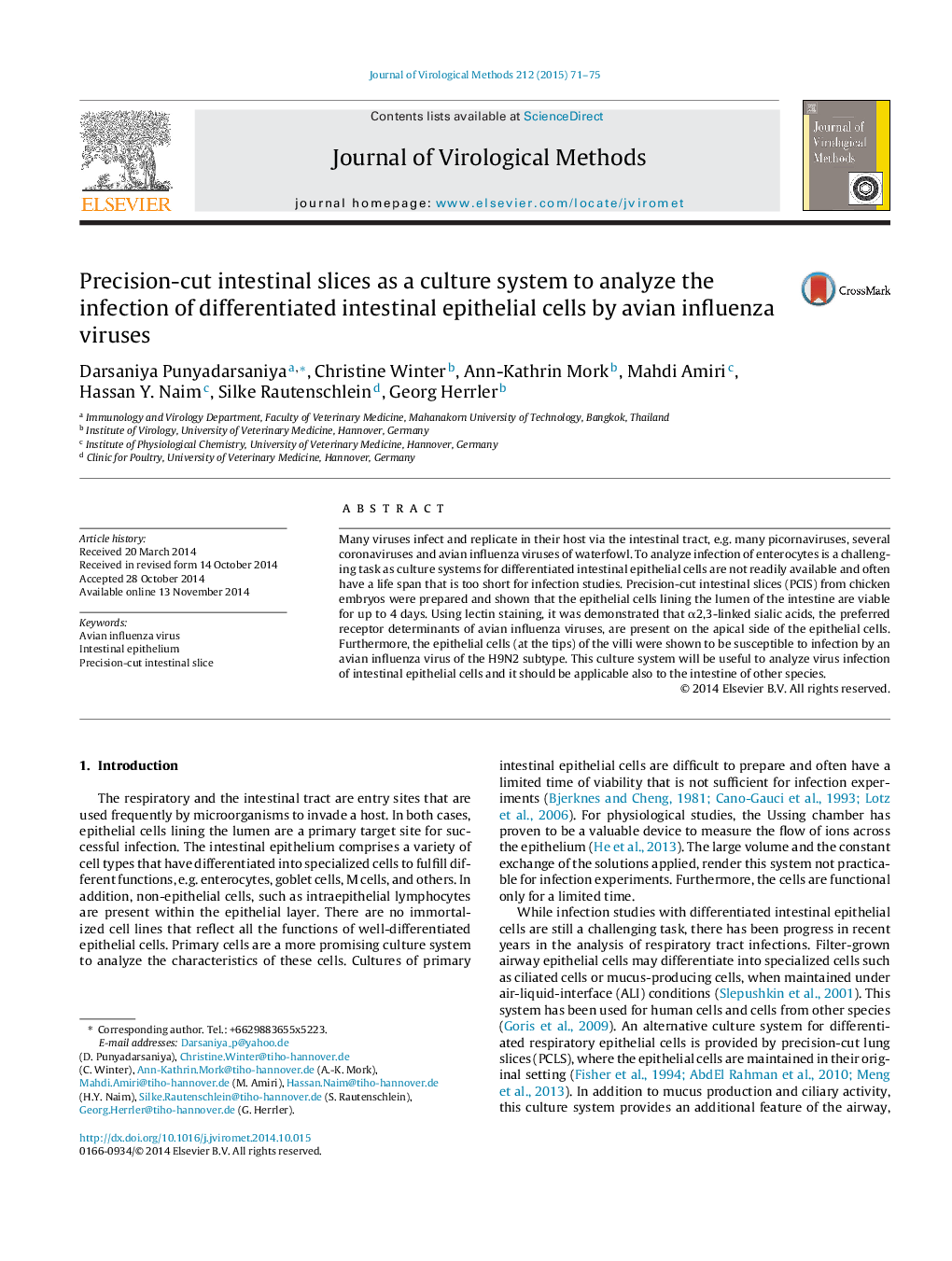| Article ID | Journal | Published Year | Pages | File Type |
|---|---|---|---|---|
| 6133425 | Journal of Virological Methods | 2015 | 5 Pages |
Abstract
Many viruses infect and replicate in their host via the intestinal tract, e.g. many picornaviruses, several coronaviruses and avian influenza viruses of waterfowl. To analyze infection of enterocytes is a challenging task as culture systems for differentiated intestinal epithelial cells are not readily available and often have a life span that is too short for infection studies. Precision-cut intestinal slices (PCIS) from chicken embryos were prepared and shown that the epithelial cells lining the lumen of the intestine are viable for up to 4 days. Using lectin staining, it was demonstrated that α2,3-linked sialic acids, the preferred receptor determinants of avian influenza viruses, are present on the apical side of the epithelial cells. Furthermore, the epithelial cells (at the tips) of the villi were shown to be susceptible to infection by an avian influenza virus of the H9N2 subtype. This culture system will be useful to analyze virus infection of intestinal epithelial cells and it should be applicable also to the intestine of other species.
Related Topics
Life Sciences
Immunology and Microbiology
Virology
Authors
Darsaniya Punyadarsaniya, Christine Winter, Ann-Kathrin Mork, Mahdi Amiri, Hassan Y. Naim, Silke Rautenschlein, Georg Herrler,
